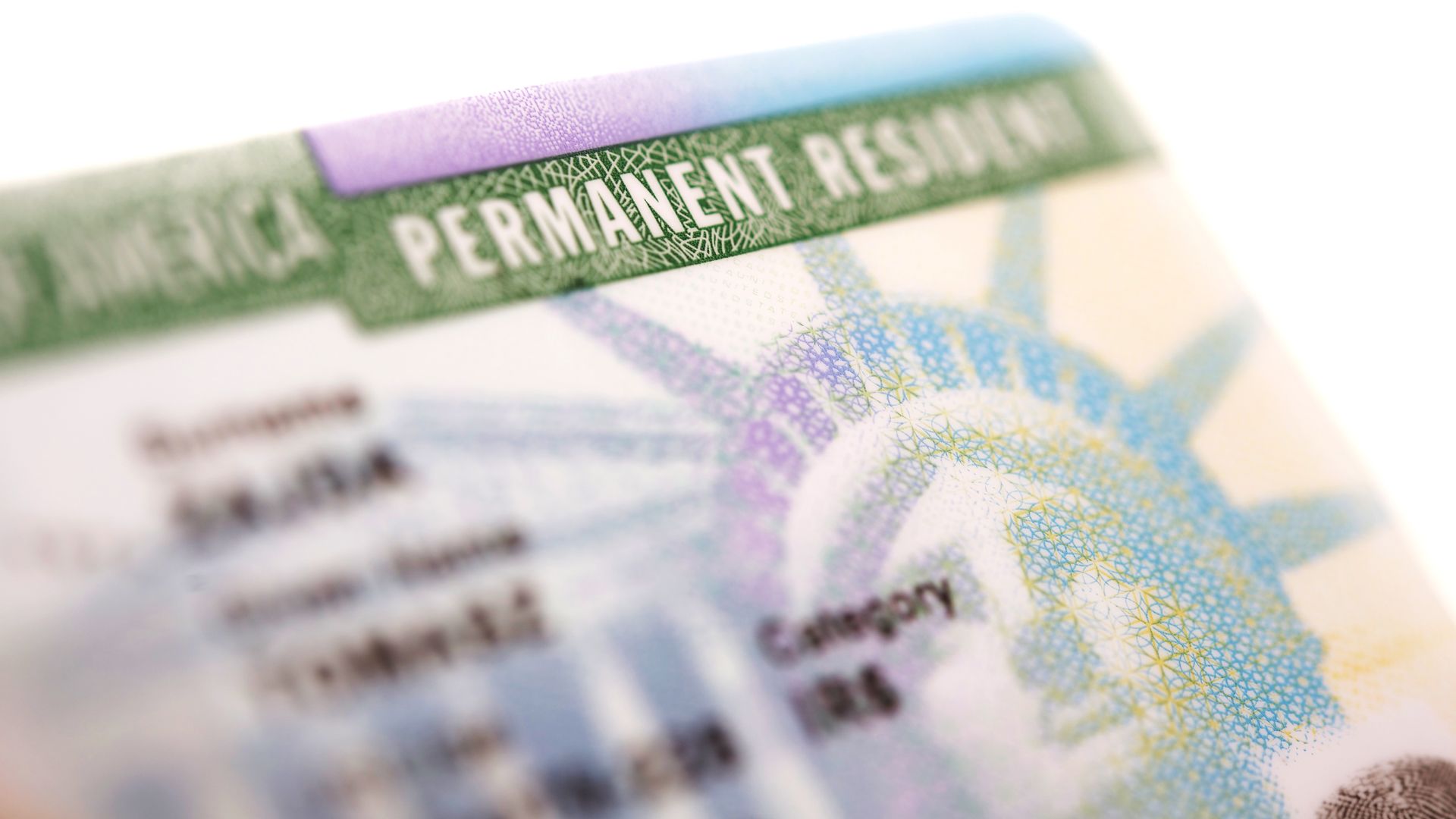Are you dreaming of becoming a permanent resident in the United States? Wondering who qualifies for a Green Card in 2024? Look no further! In this updated blog post, we break down the eligibility requirements and provide you with all the information you need to make your American dream a reality. Whether you’re a student, worker, or family member looking to settle in the US, we’ve got you covered. Read on to find out if you qualify for a Green Card and take one step closer to calling America home.
8 Questions to ask an immigration lawyer
Eligibility Requirements for a Green Card
Obtaining a Green Card, also known as permanent resident status, is often seen as the first step towards becoming a full-fledged citizen of the United States. It grants an individual the right to live and work in the country permanently and opens up various opportunities for education, healthcare, and social benefits. In this section, we will discuss these eligibility requirements in detail.
1. Family-based sponsorship: One of the most common ways of obtaining a Green Card is through family-based sponsorship. U.S citizens or permanent residents can sponsor their immediate relatives such as spouses, parents, children under 21 years old, or siblings for permanent residency. However, there may be longer wait times for siblings and adult children due to annual cap limits.
2. Employment-based immigration: Individuals with exceptional abilities or skills in fields such as science, art, education or business can apply for a Green Card through employment sponsorship. This category includes professionals holding advanced degrees or with exceptional abilities; skilled workers with at least two years of experience; religious workers; investors who are willing to invest significant capital into businesses that create jobs in the U.S.; and certain special immigrants like Afghan/Iraqi translators working with U.S forces abroad.
3. Diversity Visa Program: The Diversity Visa Program provides an opportunity for people from countries with low rates of immigration to the United States to obtain a Green Card through random selection aka diversity lottery process.
4. Refugee/Asylee status: Refugees who have been granted asylum by USCIS may apply for a Green Card after one year of being admitted into the United States while Asylees can file their application after one year of being granted asylum.
5. Special immigrant categories: Certain individuals may be eligible for a Green Card under special immigrant categories such as foreign medical graduates, religious workers, and other specific circumstances outlined by the USCIS.
Contact us if you need help with your case!
Different Categories of Eligibility (Family-based, Employment-based, Diversity Visa Lottery)
Obtaining a Green Card in the United States can be a long and complex process, but understanding the different categories of eligibility can make it easier to navigate. There are three main categories for obtaining a Green Card: family-based, employment-based, and through the Diversity Visa Lottery.
1. Family-Based: One of the most common ways to obtain a Green Card is through family sponsorship. This category is reserved for individuals who have close relatives that are U.S. citizens or permanent residents. This includes immediate relatives such as spouses, unmarried children under 21 years old, and parents (if the sponsor is over 21 years old). Other eligible family members may include siblings, married children over 21 years old, and adult children with special needs.
2. Employment-Based: Another way to obtain a Green Card is through employment sponsorship. This category is reserved for individuals who possess specific skills or talents that are needed in the U.S job market. To qualify under this category, an employer must first petition on behalf of their employee by proving that there are no qualified American workers available for that job.
3. Diversity Visa Lottery: The Diversity Visa Lottery program is a way for individuals from countries with low rates of immigration to the United States to obtain a Green Card. Each year, 55,000 diversity visas (also known as green cards) are available through a random selection process. To be eligible for this program, an individual must come from an eligible country and meet certain education or work experience requirements.
The process of becoming a citizen in the U.S.
Changes in Eligibility Requirements in 2024
One of the most notable changes in eligibility requirements is the introduction of a points-based system. This means that applicants will be evaluated on a variety of factors, such as education level, work experience, language proficiency, and age. Points will be awarded based on these criteria, and only those who meet a certain threshold will be eligible to apply for a Green Card.
Additionally, there will be stricter guidelines for those seeking family-sponsored visas. Currently, immediate relatives (spouses, parents, or unmarried children under 21) of U.S. citizens are not subject to any numerical limitations when applying for green cards. However, starting in 2024, there will be limits placed on how many immediate relative visas can be issued each year. This may result in longer wait times for some families hoping to reunite with their loved ones in the United States.
Another significant change relates to employment-based visas. The current system allows employers to sponsor foreign workers if they can demonstrate that there are no qualified American workers available for the job. However, in 2024 this sponsorship process will become more stringent and may require additional documentation and proof from both parties involved.
Tips for Applying for a Green Card
Applying for a green card can be a lengthy and complex process, but with proper preparation and understanding of the requirements, it can become a smooth journey towards obtaining permanent residency in the United States. In this section, we will discuss some essential tips that can help you in your green card application process.
1. Understand the Eligibility Criteria: Before beginning your application, make sure you understand the eligibility criteria for the specific category under which you are applying for a green card. There are several categories such as family-based, employment-based, refugee/asylee status, and diversity visa program. Each category has its own set of requirements and documentation needed.
2. Gather All Necessary Documents: The key to a successful green card application is providing accurate and complete documentation to support your case. This includes personal documents such as birth certificates, marriage certificates (if applicable), passport copies, police clearance certificates from all countries you have lived in since age 16 (if required), educational degrees or transcripts (for employment-based applications), and any other relevant documents related to your particular category.
3. Establish Strong Evidence of Relationship: If you are applying through a family-based category, it is vital to provide strong evidence of your relationship with the sponsoring relative in the US. This includes documents like photographs together, joint bank account statements, shared assets or property ownerships, communications with each other such as emails or letters.
4. Submit Accurate Forms: It is crucial to fill out all forms accurately without any mistakes or false information. Any errors or inconsistencies can delay or even lead to rejection of your application.
5. Seek Professional Help if Needed: The immigration process can be complicated and overwhelming at times; therefore, seeking professional help from an experienced immigration lawyer can greatly increase your chances of success in obtaining a green card.
What is Asylum? Full free guide
Conclusion: Importance of Knowing Your Eligibility for a Green Card
Understanding your eligibility for a Green Card is crucial for anyone considering immigrating to the United States. This document not only grants lawful permanent residence status, but it also opens up numerous opportunities and benefits that are not available to non-permanent residents.
First and foremost, having a Green Card means that you can permanently live and work in the United States without fear of deportation. This provides stability and security for individuals and their families. It also allows them to establish roots in the country and contribute to its economy.
Moreover, holding a Green Card makes it easier to travel outside of the United States. While non-permanent residents may face difficulties re-entering the country or obtaining visas for certain countries, Green Card holders have more flexibility in their international travels. This can be especially beneficial for those who have family or business ties overseas.
Understanding your eligibility for a Green Card is essential before embarking on an immigration journey to the United States. Not only does it provide permanent residency status, but it also opens up a world of opportunities and benefits that are not available to non-permanent residents.
If you found our article useful, please share it with someone who might need it. And don’t forget to follow us on Facebook and Instagram and check out all our services at rodriguezmartinimmigration.com




